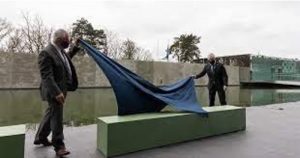By: Chiara Carni
Impunity Watch Staff Writer
BRUSSELS, Belgium – A ministerial conference on Supporting Syria and the Region was held on March 30, 2021 in Brussels. Many argued that this conference should focus on the unprecedented education crisis facing Syrian refugee children in Lebanon. Before the COVID-19 school closure, only 42 percent of the 660,000 school-age Syrian children in Lebanon were going to school. There has been a substantial drop since COVID-19, with the number now resting at 190,000 Syrian children while another 25,000 who should have re-enrolled or entered grade 1 have not. Fewer than one percent of Syrian children complete grade 9.

The Education Ministry announced its official shift to distance learning in March 2020. The Ministry announced that it would publish a distance learning strategy in August, but has failed to do so. Additionally, it has not established any clear plans for school re-openings. The cause for this dramatic drop in enrollment stems from many reasons, including restrictions on education. In many cases, refugee children cannot attend school because their families cannot afford transportation or because public schools have refused to enroll them. Schools have refused to allow Syrian children to take mandatory exams if they fail to prove legal residency in Lebanon, which is required beginning at age 15. Unfortunately, approximately 70 percent of Syrians cannot qualify or afford to provide this proof.
During the summer of 2020, the Education Ministry forced the closure of nine unlicensed private schools. The schools provided education to approximately 5,000 Syrian students, and in return, the Ministry only provided spaces at public schools for 800 students. Two humanitarian groups paid for 3,000 children to enroll at private schools, leaving 1,200 students still unenrolled by the closure. Because of the financial toll COVID-19 has put on Lebanese families, 70 percent of Lebanese children previously enrolled in private schools are now enrolled in public schools. This transfer has left almost 40,000 fewer spaces for Syrian children.
Donors pay Lebanon for each Syrian refugee child enrolled in school and pay school fees for Lebanese children. As of 2020, humanitarian funding has decreased from 1.3 billion dollars to 944 million dollars. This decrease can expect to continue if the participants contributing to the funding refuse their pledges. This decrease, coupled with the Education Ministry’s refusal to run back-to-school campaigns to promote enrollment, has contributed to the education crisis at hand.
An insufficient number of Syrian refugee children have access to the technology necessary for their education. In 2018, donors provided funds to the UN to purchase laptops for public schools. These laptops were never distributed to the students. The import company falsely claimed that 2,335 of the laptops had been destroyed in the Beirut port explosion while, instead, the laptops were sold to private buyers. Unaffordable cost of data, little internet access, and the lack of technology devices have limited Syrian children’s online access.
For further information, please see:
Executive Magazine – Lebanon’s experience with distance learning – 11 June 2020
Human Rights Watch – Lebanon: Action Needed on Syrian Refugee Education Crisis – 26 Mar. 2021



